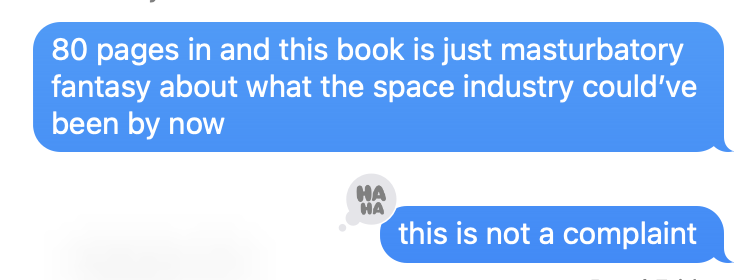edited by L.D. Lewis & Charles Payseur
Anthologies are always an interesting thing to read; they offer more variability than a single book by a single author, and tend to be a lot easier to read in bursts. This one made for some great vacation reading — get through one story, go for a dip in the pool, read another while drying off in the sun.1 That said, it’s not a guarantee it’ll be good; sometimes the focus area is too depressing, or the editors made a succession of bad choices.
This, delightfully, was not one of those. “Queer speculative fiction” is a fairly safe topic area to begin with, as it basically pins a single character trait of one or more characters in the story, and a delightfully diverse character trait it is. The title, as well, adds a certain amount of hopeful tinge to it, and the stories almost universally delivered on that.
Favorites include:
- A rural Oregonian woman having a big fight with her ex-girlfriend, exclusively in the form of flower language.
- A woman trapped in a three-day time loop before the space station she’s on explodes, using it to sample every restaurant the station has to offer.
- A lesbian couple running a magic shop together. The story opens with them having a charcuterie board for dinner, and the vibes stay immaculate from there on out; I want to read an entire series of this one.
- A POV story of the protagonist in a videogame, learning some things about themselves when the player installs a mod.
This collection was a delight; for any one of the above stories, I’d call it worth it, and it includes all of them and more. Give it a go!2
- And getting a little sunburned, but oh well. ↩
- This is a Bookshop affiliate link – if you buy it from here, I get a little bit of commission. It won’t hurt my feelings if you buy it elsewhere; honestly, I’d rather you check it out from your local library, or go to a local book store. I use Bookshop affiliate links instead of Amazon because they distribute a significant chunk of their profits to small, local book stores. ↩
